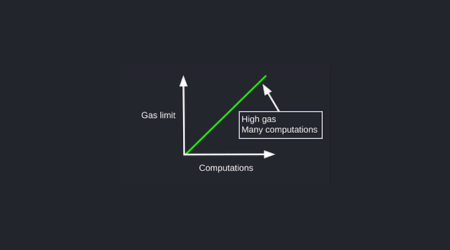Are you a Solidity developer looking for a comprehensive guide on checking blockchain addresses? Look no further!
This how-to guide will equip you with the knowledge and skills to validate Ethereum addresses, implement address validation in smart contracts, and efficiently handle addresses in Solidity.
By exploring address-related functions and checking address balances, you’ll gain a deeper understanding of how to harness the power of blockchain technology.
Get ready to dive into the world of Solidity and become a master of checking blockchain addresses!
1. Key Takeaways
- Solidity provides built-in functions for address manipulation, encoding, and decoding.
- Address validation techniques, such as verifying the length, checksum, and format, enhance the security and reliability of smart contracts.
- Retrieving address balances is possible through Solidity’s built-in functions and variables, allowing for the execution of specific actions based on the balance.
- Solidity allows for the seamless integration of smart contracts onto the blockchain, enabling interaction and execution of contract functions.
2. Understanding Solidity Data Types
Understanding Solidity data types is crucial when developing smart contracts. In Solidity, addresses are a fundamental data type used to represent Ethereum addresses.
Address manipulation is a common task when working with smart contracts. Solidity provides built-in functions for address encoding and decoding, allowing developers to convert addresses to and from other data types.
By understanding how to manipulate and encode addresses, you can ensure the accuracy and security of your smart contract.
Now let’s delve into validating Ethereum addresses in Solidity.
3. Validating Ethereum Addresses in Solidity
To validate Ethereum addresses in Solidity, it’s important to ensure that the address is formatted correctly. Here are some key points to consider when implementing address validation in Python:
- Use regular expressions to match the correct format of an Ethereum address.
- Validate the length of the address to ensure it meets the required number of characters.
- Verify the checksum to prevent common errors when validating Ethereum addresses.
- Perform a cryptographic hash function to ensure the integrity of the address.
Now, let’s explore how to implement address validation in smart contracts.
4. Implementing Address Validation in Smart Contracts
When implementing address validation in smart contracts, it’s crucial to ensure that the address is formatted correctly. Address validation techniques can help prevent errors and ensure the accuracy of transactions.
The address verification process involves checking the length and characters of the address, as well as verifying its integrity using algorithms such as checksums.
By implementing proper address validation techniques, you can enhance the security and reliability of your smart contracts.
Now, let’s explore best practices for handling addresses in solidity.
5. Best Practices for Handling Addresses in Solidity
When it comes to handling addresses in Solidity, there are several key points to consider.
First, you need to ensure that you have effective address validation methods in place to verify the correctness of the addresses being used. This is crucial for preventing any potential errors or vulnerabilities in your smart contracts.
Second, security considerations for addresses are of utmost importance, as they can be a potential target for hackers. It is essential to implement robust security measures to protect the addresses and the associated assets.
Lastly, handling address input requires careful attention to user experience and error handling, as incorrect or invalid addresses can cause significant issues in the functioning of your smart contracts.
I. Address Validation Methods
One way to validate addresses in Solidity is by using the built-in function isContract to check if the given address is a contract.
To further ensure address validity, consider these factors:
- Address format: Addresses in Solidity are 20-byte values that are typically represented as hexadecimal strings.
- Address generation: Addresses can be generated through various methods, such as using a wallet or a smart contract.
isContractfunction: This function returns true if the address corresponds to a smart contract, allowing for contract-specific validation.- Error handling: Proper error handling should be implemented to handle invalid addresses and prevent potential vulnerabilities.
Understanding address validation is crucial for building secure and reliable smart contracts. However, it’s important to also consider security considerations for addresses to mitigate risks and protect the integrity of the blockchain.
II. Security Considerations for Addresses
Now that you understand the various methods for validating addresses, it’s crucial to consider the security risks associated with them.
One significant concern is address manipulation, where malicious actors attempt to modify addresses to their advantage. This can lead to fraudulent transactions and loss of funds.
To address this issue, it’s essential to implement robust security measures in your smart contracts to prevent such manipulations. In the next section, we will explore how to handle address input securely and efficiently.
III. Handling Address Input
To ensure secure and efficient handling of address input, it’s important to implement proper validation techniques and error checking in your code. Address input validation is crucial to prevent potential security vulnerabilities and ensure the accuracy of data.
When handling address input, consider the following steps:
- Verify that the input is a valid Ethereum address format.
- Check for any special characters or invalid symbols.
- Validate the checksum to ensure the address is not mistyped.
- Implement error handling for invalid addresses to avoid any unexpected behaviors.
Now, let’s move on to the next section about checking address balances in Solidity.
6. Checking Address Balances in Solidity
When it comes to checking address balances in Solidity, there are a few key points to consider.
First, you need to understand the process of address balance retrieval, which involves accessing and retrieving the balance of a specific address on the blockchain. This can be done by utilizing the built-in functions and variables provided by Solidity.
Additionally, it’s important to explore the integration of address balance retrieval within Solidity smart contracts, as this allows for the execution of specific actions based on the balance of a given address.
I. Address Balance Retrieval
You can easily retrieve an address balance in Solidity using the appropriate function. To calculate the address balance, you need to track the transactions associated with that address. Here’s how you can do it:
- Use the function to get the total balance of the address.
- Iterate through the transactions to calculate the incoming and outgoing amounts.
- Subtract the outgoing amount from the total balance to get the final balance.
- Return the final balance.
Now that you know how to retrieve an address balance, let’s move on to the next section about Solidity smart contract integration.
II. Solidity Smart Contract Integration
If you want to integrate a Solidity smart contract, make sure to follow the proper steps for seamless integration.
First, you need to deploy the Solidity contract onto the blockchain using the appropriate deployment tools and techniques. This ensures that your contract is available for interaction and execution.
Once deployed, you can handle events in Solidity to capture and respond to specific occurrences within your contract.
Now, let’s explore address-related functions in Solidity to further enhance your contract’s capabilities.
7. Exploring Address-related Functions in Solidity
To access address-related functions in Solidity, simply use the appropriate syntax and enjoy the benefits of blockchain technology.
Solidity provides several powerful tools for address manipulation and generation. Here’s a quick rundown of some key features:
- Address Validation: Solidity allows you to verify the validity of an address, ensuring it meets the required format.
- Address Conversion: You can convert addresses into different formats, such as from hexadecimal to base58 and vice versa.
- Address Comparison: Solidity enables you to compare addresses to check if they are equal or not.
- Address Manipulation: You can perform various operations on addresses, like extracting the balance or sending funds.
With these functions at your disposal, you can confidently work with addresses in Solidity and harness the full potential of blockchain technology.




